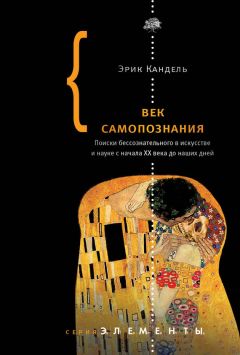Freud, S. Collected Papers. Vol. IV. London: Hogarth Press and Institute of Psychoanalysis, 1950.
Gay, P. The Freud Reader. New York: W. W. Norton, 1989.
Gombrich, E. H. The Story of Art. London: Phaidon Press, 1955.
Helmholtz, H. von Treatise on Physiological Optics (1910). Southall, J. P. C., editor & translator. New York: Dover, 1925.
Iverson, S., Kupfermann, I., and E. R. Kandel Emotional States and Feelings / In: Principles of Neural Science. 4th ed. E. R. Kandel, J. H. Schwartz, T. Jessell, eds. New York: McGraw-Hill, 2000. Pp. 982–997.
James, W. The Principles of Psychology. Cambridge, MA, and London: Harvard University Press, 1890.
Kant, I. Groundwork for the Metaphysics of Morals (1785). New York: Cambridge University Press, 1998.
Kemball, R. Art in Darwin’s terms // Times Literary Supplement, March 20, 2009.
Kris, E. Psychoanalytic Explorations in Art. New York: International Universities Press, 1952.
Lang, P. J. The emotion probe: Studies of motivation and attention // American Psychologist 50 (5) 1995: 272–285.
Panofsky, E. Studies in Iconology: Humanistic Themes in the Art of the Renaissance. Boulder, CO: Westview Press, 1939.
Pascalis, O., de Haan, M., and C. A. Nelson Is face processing species-specific during the first year of life? // Science Magazine 296 (5571) 2002: 1321–1323.
Rolls, E. T. Emotion Explained. New York: Oxford University Press, 2005.
Silva, P. J. Emotional response to art: From collation and arousal to cognition and emotion // Review of General Psychology 90 (2005): 342–357.
Slaughter, V., and M. Heron Origins and early development of human body knowledge // Monographs of the Society for Research in Child Development 69 (2) 2004: 103–113.
Solms, M., and E. Nersessian Freud’s theory of affect: Questions for neuroscience // Neuropsychoanalysis 1 (1999): 5–14.
Sousa, R. de Emotion / In: The Stanford Encyclopedia of Philosophy. E. N. Zalta, ed. Stanford, CA: Metaphysics Research Lab, 2010.
Strack, F., Martin, L. L., and S. Stepper Inhibiting and facilitating conditions of the human smile: A nonobtrusive test of the facial feedback hypothesis // Journal of Personality and Social Psychology 54 (5) 1988: 768–777.
Глава 20. Передача эмоцийхудожественными средствамиAiken, N. E. Physiognomy and art: Approaches from above, below, and sideways // Visual Art Research 10 (1984): 52–65.
Barnett, J. R., Miller, S., and E. Pearce Colour and art: A brief history of pigments // Optics and Laser Technology 38 (2006): 445–453.
Chartrand, T. L., and J. A. Bargh The chameleon effect: The perception-behavior link and social interaction // Journal of Personality and Social Psychology 76 (6) 1999: 893–910.
Damasio, A. Descartes’ Error: Emotion, Reason, and the Human Brain. New York: G. P. Putnam’s Sons, 1994.
Darwin, C. The Expression of the Emotions in Man and Animals. New York: Appleton-Century-Crofts, 1872.
Downing, P. E., Jiang, Y., Shuman, M., and N. Kanwisher A cortical area selective for visual processing of the human body // Science 293 (5539) 2001: 2470–2473.
Ekman, P. Emotions Revealed: Recognizing Faces and Feelings to Improve Communication and Emotional Life. New York: Owl Books, 2003.
Frith, U. Autism: Explaining the Enigma. Oxford: Blackwell Publishing, 1989.
Gage, J. Color in Art. London: Thames and Hudson, 2006.
Hughes, R. The Shock of the New: Art and the Century of Change. 2nd ed. London: Thames and Hudson, 1991.
Javal, E. Physiologie de la Lecture et de l’Écriture. Paris: Felix Alcan, 1906.
Langton, S. R. H., Watt, R. J., and V. Bruce Do the eyes have it? Cues to the direction of social attention // Trends in Cognitive Science 4 (2000): 50–59.
Livingstone, M. Vision and Art: The Biology of Seeing. New York: Harry N. Abrams, 2002.
Livingstone, M., and D. Hubel Segregation of form, color, movement, and depth: Anatomy, physiology, and perception // Science 240 (1988): 740–749.
Lotto, R. B., and D. Purves Perceiving color // Review of Progress in Coloration 34 (2004): 12–25.
Marks, W. B., Dobelle, W. H., and E. F. MacNichol Visual pigments of single primate cones // Science 13 (1964): 1181–1182.
Molnar, F. About the role of visual exploration in aesthetics / In: Advances in Intrinsic Motivation and Aesthetics. H. Day, ed. New York: Plenum, 1981.
Natter, T. G., ed. Oskar Kokoschka: Early Portraits from Vienna and Berlin, 1909–1914. Köln: Dumont Buchverlag, 2002.
Nodine, C. F., Locher, P. J., and E. A. Krupinski The role of formal art training on perception and aesthetic judgment of art compositions // Leonardo 26 (3) 1993: 219–227.
Pelphrey, K. A., Morris, J. P., and G. McCarthy Grasping the intentions of others: The perceived intentionality of an action influences activity in the superior temporal sulcus during social perception // Journal of Cognitive Neuroscience 16 (10) 2004: 1706–1716.
Pirenne, M. H. Rods and cones and Thomas Young’s theory of color vision // Nature 154 (1944): 741–742.
Puce, A., Allison, T., Bentin, S., Gore, J. C., and G. McCarthy Temporal cortex activation in humans viewing eye and mouth movements // Journal of Neuroscience 18 (1998): 2188–2199.
Sacco, T., and B. Sacchetti Role of secondary sensory cortices in emotional memory storage and retrieval in rats // Science 329 (2010): 649–656.
Simpson, K. Viennese art, ugliness, and the Vienna School of Art History: The vicissitudes of theory and practice // Journal of Art Historiography 3 (2010): 1–14.
Slaughter, V., and M. Heron Origins and early development of human body knowledge // Monographs of the Society for Research in Child Development 69 (2) 2004: 103–113.
Solso, R. L. Cognition and the Visual Arts. Cambridge, MA: MIT Press, Bradford Books, 1994.
Zeki, S. Splendors and Miseries of the Brain. Oxford: Wiley-Blackwell, 2008.
Глава 21. Бессознательные эмоции, сознательные чувства и их телесные проявленияAdolphs, R., Tranel, D., and A. R. Damasio Impaired recognition of emotion in facial expression, following bilateral damage to the human amygdala // Nature 372 (1994): 669–672.
Adolphs, R., Gosselin, F., Buchanan, T. W., Tranel, D., Schyns, P., and A. Damasio A mechanism for impaired fear recognition after amygdala damage // Nature 433 (2005): 68–72.
Anderson, A. K., and E. A. Phelps Expression without recognition: Contributions of the human amygdala to emotional communication // Psychological Science 11 (2) 2000: 106–111.
Arnold, M. B. Emotion and Personality. New York: Columbia University Press, 1960.
Barzun, J. A Stroll with James. Chicago: University of Chicago Press, 2002.
Boring, E. G. A History of Experimental Psychology. New York: Appleton-Century-Crofts, 1950.
Bradley, M. M., Greenwald, M. K., Petry, M. C., and P. J. Lang Remembering pictures: Pleasure and arousal in memory // Journal of Experimental Psychology: Learning, Memory, and Cognition 18 (1992): 379–390.
Cannon, W. B. Bodily Changes in Pain, Hunger, Fear, and Rage: An Account of Recent Researches into the Function of Emotional Excitement. New York: D. Appleton & Co., 1915.
Cardinal, R. N., Parkinson, J. A., Hall, J., and B. J. Everitt Emotion and motivation: The role of the amygdala, ventral striatum, and prefrontal cortex // Neuroscience and Biobehavioral Reviews 26 (2002): 321–352.
Craig, A. D. How do you feel – now? The anterior insula and human awareness // National Review of Neuroscience 10 (1) 2009: 59–70.
Critchley, H. D., Wiens, S., Rotshtein, P., Öhman, A., and R. J. Dolan Neural systems supporting interoceptive awareness // Nature Neuroscience 7 (2004): 189–195.
Damasio, A. Descartes’ Error: Emotion, Reason, and the Human Brain. New York: G. P. Putnam’s Sons, 1994.
Damasio, A. The somatic marker hypothesis and the possible functions of the prefrontal cortex // Proceedings of the Royal Society of London B 351 (1996): 1413–1420.
Damasio, A. The Feeling of What Happens: Body and Emotion in the Making of Consciousness. New York: Harcourt Brace, 1999.
Darwin, C. The Expression of the Emotions in Man and Animals. London: John Murray, 1872.
Etkin, A., Klemenhagen, K. C., Dudman, J. T., Rogan, M. T., Hen, R., Kandel, E., and J. Hirsch Individual differences in trait anxiety predict the response of the basolateral amygdala to unconsciously processed fearful faces // Neuron 44 (2004): 1043–1055.
Freud, S. The Unconscious. London: Penguin Books, 1915.
Frijda, N. H. Emotion experience // Cognition and Attention 19 (2005): 473–498.
Frith, C. Making Up the Mind: How the Brain Creates Our Mental World. Malden, MA: Blackwell Publishing, 2007.
Harrison, N. A., Gray, M. A., Gienoros, P. S., and H. D. Critchley The embodiment of emotional feeling in the brain // Journal of Neuroscience 30 (38) 2010: 12878–12884.
Iverson, S., Kupfermann, I., and E. R. Kandel Emotional States and Feelings / In: Principles of Neural Science. 4th ed. E. R. Kandel, J. H. Schwartz, T. Jessell, eds. New York: McGraw-Hill, 2000. Pp. 982–997.
James, W. What is an emotion? // Mind 9 (1884): 188–205.
James, W. Principles of Psychology. Vols. 1, 2. Mineola, NY: Dover Publications, 1890.
Kandel, E. In Search of Memory. The Emergence of a New Science of Mind. New York: W. W. Norton, 2006.
Klüver, H., and P. C. Bucy Preliminary analysis of functions of the temporal lobes in monkeys // Archives of Neurology and Psychiatry 42 (6) 1939: 979–1000.
Knutson, B., Delgado, M., and P. Phillips Representation of Subjective Value in the Striatum / In: Neuroeconomics: Decision Making and the Brain. P. Glimcher, C. Camerer, E. Fehr, R. Poldrack, eds. London: Academic Press, 2008. Ch. 25.
Lang, P. J. The varieties of emotional experience: A meditation on James-Lange theory // Psychological Review 101 (1994): 211–221.
LeDoux, J. The Emotional Brain: The Mysterious Underpinning of Emotional Life. New York: Simon and Schuster, 1996.
Miller, E. K., and J. D. Cohen An integrative theory of prefrontal cortex function // Annual Review of Neuroscience 24 (2001): 167–202.
Oatley, K. Emotions: A Brief History. Oxford: Blackwell Publishing, 2004.
Phelps, E. A. Emotion and cognition: Insights from studies of the human amygdale // Annual Review of Psychology 57 (2006): 27–53.
Rokitansky, C. von Handbuch der pathologischen Anatomie. Braumüller & Seidel, 1846.
Rolls, E. T. Emotion Explained. New York: Oxford University Press, 2005.
Salzman, C. D., and S. Fusi Emotion, cognition, and mental state representation in amygdala and prefrontal cortex // Annual Review of Neuroscience 33 (2010): 173–202.
Schachter, S., and J. E. Singer Cognitive, social, and physiological determinants of emotional states // Psychological Review 69 (1962): 379–399.
Vuilleumier, P., Richardson, M. P., Armory, J. L., Driver, J., and R. J. Dolan Distant influences of amygdala lesion on visual cortical activation during emotional face processing // Nature Neuroscience 7 (2004): 1271–1278.
Weiskrantz, L. Behavioral changes associated with ablation of the amygdaloid complex in monkeys // Journal of Comparative Physiological Psychology 49 (1956): 381–391.
Whalen, P. J., Kagan, J., Cook, R. G., Davis, C., Kim, H., Polis, S., McLaren, D. G., Somerville, L. H., McLean, A. A., Maxwell, J. S., and T. Johnston Human amygdala responsivity to masked fearful eye whites // Science 306 (2004): 2061.
Whitehead, A. N. Science and the Modern World. New York: Macmillan, 1925.
Wurtz, R. H., and E. R. Kandel Construction of the Visual Image / In: Principles of Neural Science. 4th ed. E. R. Kandel, J. H. Schwartz, T. Jessell, eds. New York: McGraw-Hill, 2000. Pp. 492–506.
Глава 22. Нисходящий контроль над когнитивной эмоциональной информациейAmodio, D. M., and C. D. Frith Meeting of minds: The medial frontal cortex and social cognition // National Review of Neuroscience 7 (4) 2006: 268–277.
Anderson, A. K., and E. A. Phelps Is the human amygdala critical for the subjective experience of emotion? Evidence of dispositional affect in patients with amygdala lesions // Journal of Cognitive Neuroscience 14 (2002): 709–720.
Anderson, S. W., Bechara, A., Damascott, T. D., and A. R. Damasio Impairment of social and moral behavior related to early damage in the human prefrontal cortex // Nature Neuroscience 2 (1999): 1032–1037.
Berridge, K. C., and M. L. Kringelbach Effective neuroscience of pleasure: Rewards in humans and animals // Psychopharmacology 199 (2008): 457–480.
Breiter, H. C., Aharon, I., and D. Kahneman Functional imaging of neural responses to expectancy and experience of monetary gains and losses // Neuron 30 (2001): 619–639.
Breiter, H. C., Gollub, R. L., and R. M. Weisskoff Acute effects of cocaine on human brain activity and emotion // Neuron 19 (1997): 591–611.





